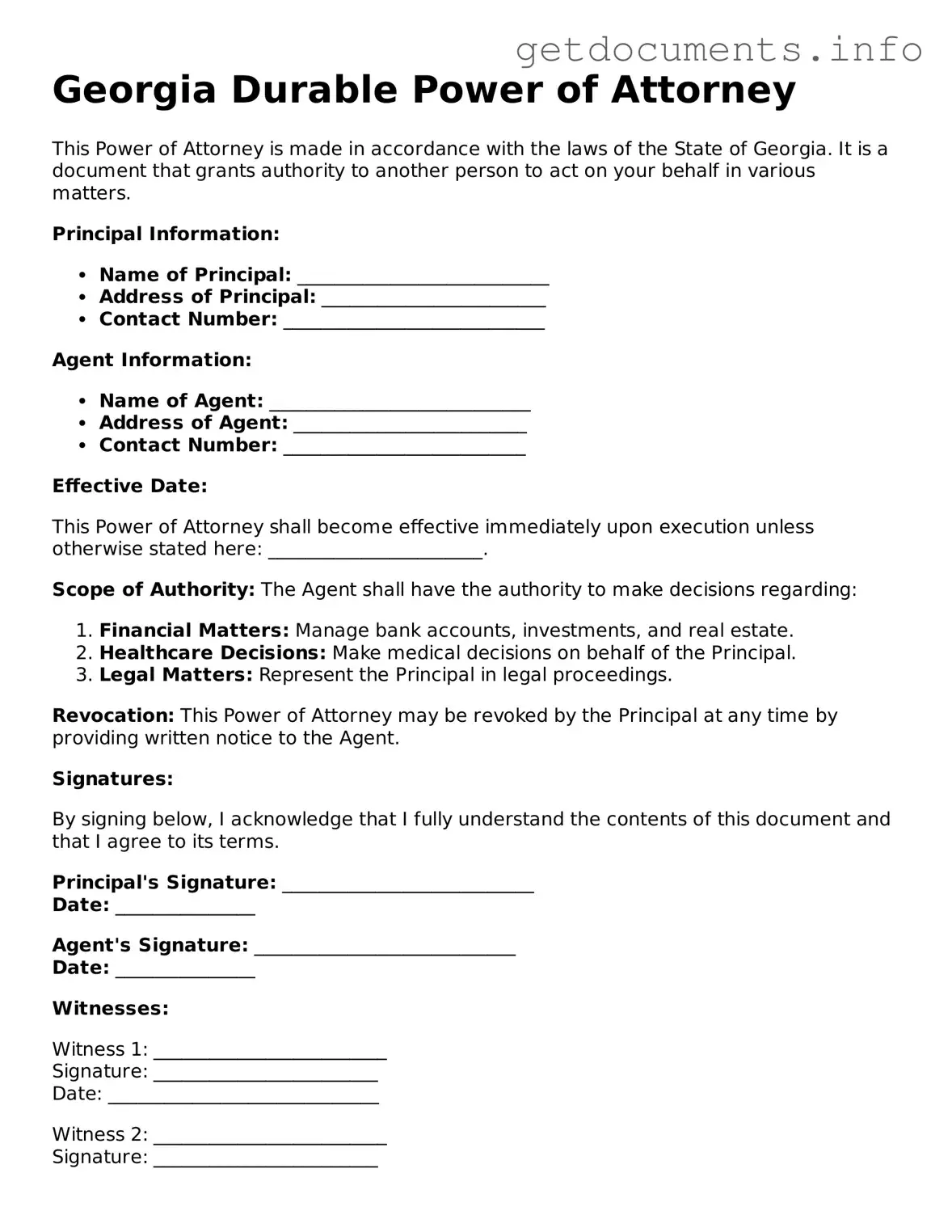Free Power of Attorney Template for Georgia
A Power of Attorney form in Georgia allows an individual to designate another person to make decisions on their behalf regarding financial, legal, or medical matters. This legal document provides the appointed agent with the authority to act in the best interest of the principal when they are unable to do so themselves. Understanding the specifics of this form is essential for ensuring that your wishes are honored.
To fill out the Power of Attorney form, please click the button below.
Access Power of Attorney Editor

Free Power of Attorney Template for Georgia
Access Power of Attorney Editor
Got places to be? Complete the form fast
Fill out Power of Attorney online and avoid printing or scanning.
Access Power of Attorney Editor
or
⇩ PDF File
